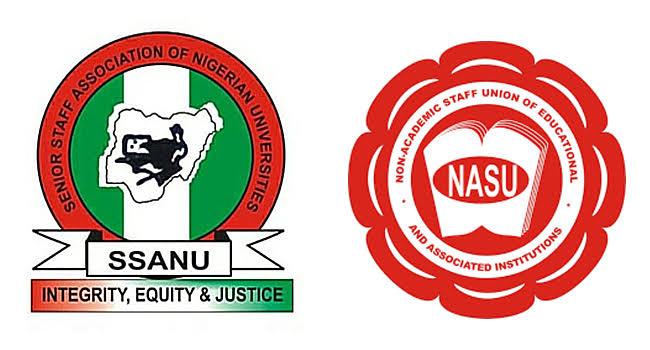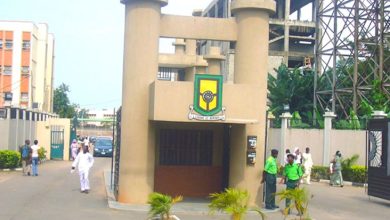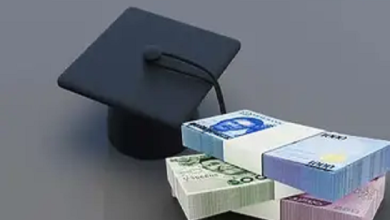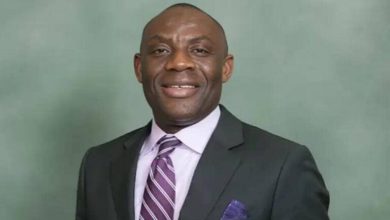Assu, Varsity Workers Begin Nationwide Strike Monday

The leadership of both the Senior Staff Association of Nigerian Universities (SSANU) and the Non-Academic Staff Union of Educational and Associated Institutions (NASU) have directed their members across university and inter-university centre campuses nationwide to withdraw services beginning from Monday, 18 March.
The seven-day industrial action, according to a memo addressed to the branches of the unions and dated Friday, 15 March, is in fulfilment of the earlier threat and ultimatum issued to the Nigerian government by the unions over the unpaid withheld salaries of their members.
The memo, which was issued by the Joint Action Committee (JAC) of both SSANU and NASU, and signed by the National President of SSANU, Mohammed Ibrahim, and the General Secretary of NASU, Peters Adeyemi, urged the branch leaders to ensure total compliance to the directive.
JAC blamed the Nigerian government for allowing the matter to degenerate, querying the justification for the payment of the withheld salaries of the members of the Academic Staff Union of Varsity (ASUU) but decided to leave out their members.
The memo reads in part: “Please note that the 7-day warning strike should be comprehensive and total as no concession should be given in any guise.
Your strict compliance and adherence to this directive is mandatory for all NASU and SSANU branches in the Universities and Inter-University Centres.
Backstory
In 2022, two months after ASUU commenced a nationwide strike, both SSANU and NASU also embarked on nationwide industrial action that further crippled activities across the campuses.
The action was to protest the government’s failure to fulfil its promises to the workers and what they described as gross underfunding of the universities.
At the time, the administration of former President Muhammadu Buhari invoked a ‘No Work, No Pay’ policy and withheld the workers’ salaries.
The National Association of Academic Technologists (NAAT) also took part in the strike at the time.
SSANU queried the rationale behind the government’s insistence on the “no work, no pay policy,” saying that due process was followed before embarking on the strike that lasted four months. Till the end of his tenure, Mr Buhari never authorised the payment of the workers.
Tinubu orders payment of ASUU members
Meanwhile, in October, President Bola Tinubu announced that his government would pay four months of the withheld salaries to members of ASUU. The announcement instantly raised concerns over the fate of the members of the other unions.
The National Vice President of SSANU, Abdussobur Salaam, said that the directive appeared to be selective in favour of a single union out of others whose members’ salaries were withheld.
He said the president’s directive if not reviewed to include SSANU and other unions could be a recipe for disaster as he threatened another round of strikes if SSANU members’ withheld salaries were not paid alongside that of ASUU.
“The directive appears to be misdirected because all university unions went on strike last year and not ASUU alone. To that extent, that directive cannot be selective in favour of a single union but can only be general,” Mr Salaam said in October.
However, some days ago, the Nigerian government paid four months of the more than seven months’ salaries of the academics, leaving out the non-academic staff.
SSANU, NASU kick
Following what it described as deliberate neglect of their members to pay their withheld salaries, and the alleged refusal to acknowledge their various letters addressed to the government through the Chief of Staff to the President, Femi Gbajabiamila, and the Minister of Education, Tahir Mamman, both SSANU and NASU threatened to down tools.
Earlier on 1 March, PREMIUM TIMES reported a joint statement issued by the two unions, urging the government to consider their case by paying their members.
Similarly, at the end of its National Executive Council (NEC) meeting held at the Federal University of Technology, Akure (FUTA), Ondo State, a few days ago, SSANU approved the suggestion that its members should be withdrawn from their duty posts for seven days.
The union urged its NASU counterpart to also reach the same conclusion with its members for joint action, saying there would be no going back if the government refused to accede to their request.
JAC Gives Directive
In its latest action, JAC on Friday directed the unions’ members nationwide to commence the seven-day industrial action, blaming the government for ignoring their appeals.
The unions also listed their efforts towards an amicable resolution of the matter but that they received no response from the government.
The memo addressed to all branch chairpersons of SSANU and NASU reads in part: “The Joint Action Committee (JAC) of NASU and SSANU has inundated the Federal Government with the need to pay the withheld four months’ salaries of our members in the federal universities and inter-university centres as done for our academic counterparts to no avail.
“As a matter of fact, the attention of Rt. Hon. Femi Gbajabiamila, Chief of Staff to the President, and Prof. Tahir Mamman, SAN, OON, the Honourable Minister of Education, were called to this injustice and unfair treatment of our members in our letter referenced JAC/NS/VOL.II/277 dated 13th February, 2024 and to also inform them to resolve the issue positively before it leads to unnecessary upheaval in our university sector.
“In a similar vein, a press release was issued on 1st March 2024 and the Federal Government was given a seven-day ultimatum to do the needful in respect of the payment of the withheld 4 months’ salaries but nothing was done on same.”
JAC said having waited patiently for the ultimatum to expire without a positive response from the government, “this is to direct our members in the universities and inter-university centres throughout the country to commence a 7-day warning strike effective Monday, 18th March 2024 in the first instance.”
It urged members of the unions to ensure strict compliance with the directive, noting that whatever happens within the seven days would determine the next line of action to be pursued.






